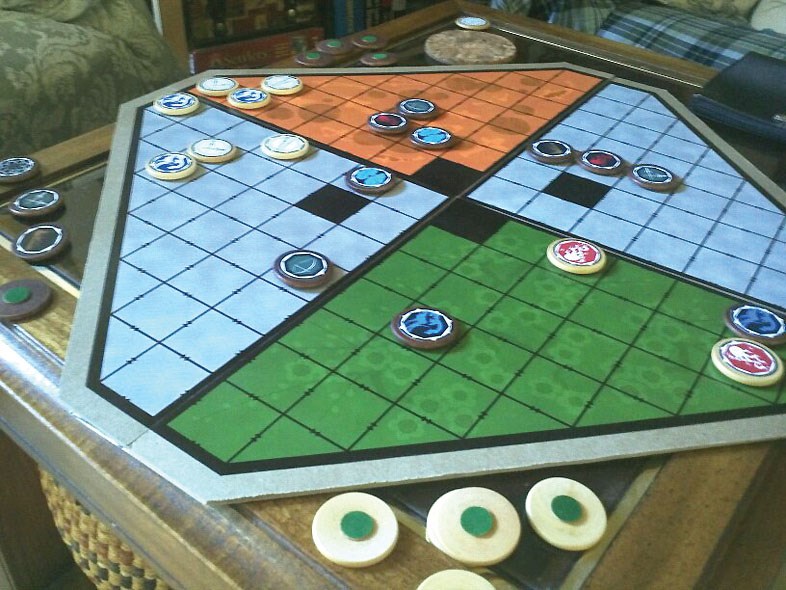The current year has been a strange one in almost every facet of our lives, reviewing games included.
There was a string of print ‘n play games reviewed, to help people have something to do in a time of self-isolation, and a month dedicated to interviews with people from world organizations dedicated to particular games, just for some variety.
So there have been less ‘new’ games coming under the pen of review of late, and as we start to look ahead to the ‘best of’ look backs at year-end, which games are worthy of such listing is a tad thin
Then along comes a game like this week’s Paiko and there is immediately a front-runner for best game reviewed in 2020.
Paiko isn’t exactly new, but it really is too. Yes that sounds confusing but it’s really not.
The game from designers Michael Irving, and Marianne Waage was first created back in 2012, and was initially web-published (print ‘n play components), but this year has a commercial release from Catalyst Game Labs best known for the Shadowrun RPG and best-loved in my case for The Duke.
I mention The Duke as it flirts with С����Ƶ a pure abstract strategy game, save for the pulling of tiles from a bag.
With Paiko it is a pure abstract strat game and a very nice looking one too.
The game does come in a somewhat offbeat triangle-shaped box that some will see as hard to store, but on its edge like a book its fine, and flat put it on top of the pile as you will want to play this game a lot anyways so it will be fine.
The board is nice with koi and lotus blossom art, is not exceptional as it is just typical cardboard-construction.
The pieces remind of checkers, and are a nice material that reminds of bakelite.
There are eight different pieces, swords, fire, earth, water, etc., each with colourful art on the pieces.
A minor quibble is that wind and water as a bit too close in appearance with a mint green and light blue that you need to make sure you are aware what is on the board.
For those that are colour blind there may be issues too.
The game is about area control, getting enough pieces into scoring position to have 10-points on your turn;
• Two points for each of your tiles currently on your opponent’s home ground.
• One point for each of your tiles currently on middle ground.
The game ends tied if each player has lost 13 or more tiles and has five or fewer points.
On your turn you may deploy tiles from your hand onto the board. You can deploy tiles on your home ground, or you can also deploy a tile on squares you ‘threaten’.
Various pieces have threat patterns, for example two forward, back or sideways in the case of the earth piece.
Or, you may draw three tiles of your choice from your tile reserve into your hand.
Or, you may shift tiles already on the board. You can shift up to two squares (each non-diagonal), and rotate to face any non-diagonal direction (yes facing matters here).
Threat is also how you capture, after your action phase, captures based on threat take place.
Typically a tile is captured when it is in the ‘threat’ area of two or more pieces. Each time you capture a tile, your opponent chooses a tile for you to immediately draw from your reserve.
Some tiles offer ‘cover’ too. A tile in cover requires three ‘threat’ to capture, instead of two.
With eight pieces, each with its unique threat or cover patterns, there is some learning here. Of course the same can be said of chess with its six different pieces. I recommend putting the pieces on the coffee table and when your TV show does to advertising grab a couple, and try to recall what they do. Have the rulebook handy with its nice patterns section, and you will learn them rather quickly.
This game was an instant favourite for me. There are lots of potential strategy and piece synergies to explore, and it looks great while you do it.
The potential for expansion with new pieces are tantalizing too.
A definite winner in my books.
Thanks to Adam Daniels for his help playtesting this one.




